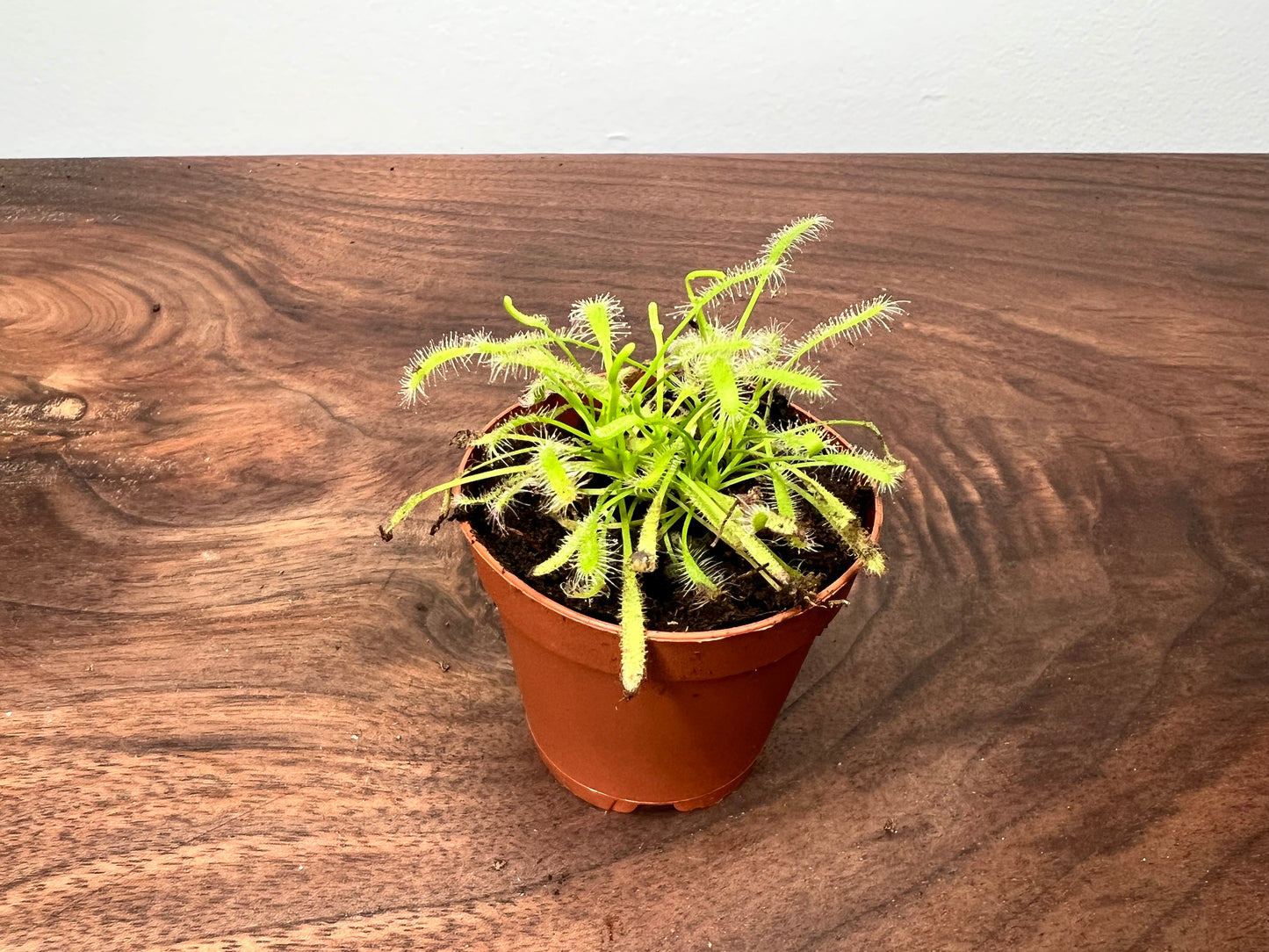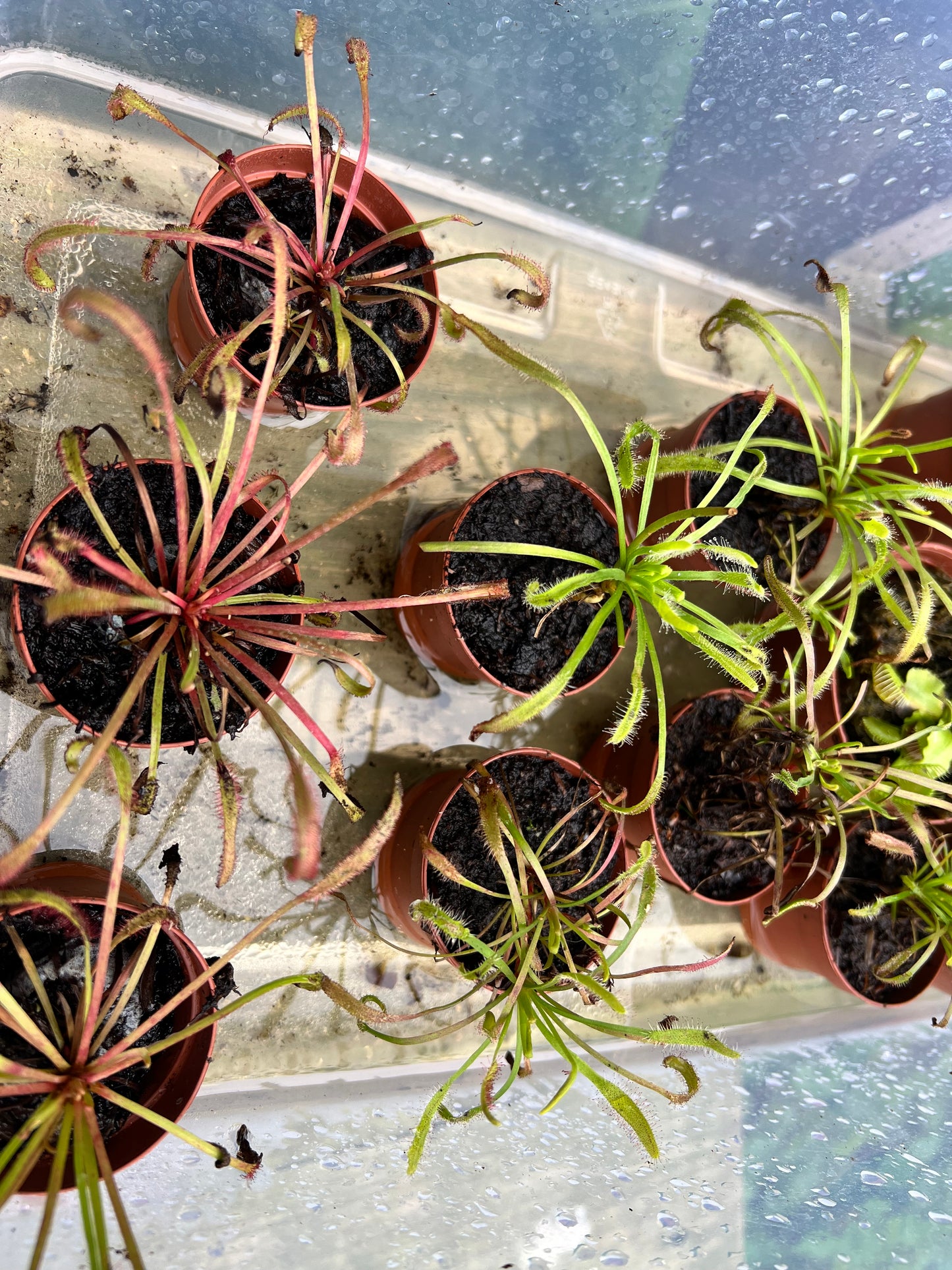The Rooted Plant Shop
Carnivorous- Cape Sundew
Carnivorous- Cape Sundew
Couldn't load pickup availability
The Cape sundew (Drosera capensis) is a striking carnivorous plant native to the Cape of Good Hope in South Africa. Known for its long, slender, sticky, tentacle-like leaves, it captures prey with the help of glandular hairs that exude a glistening, sticky secretion. Insects and small invertebrates are lured by the dewdrops, which resemble drops of water, and when they land on the leaves, they become trapped. The plant then slowly curls its leaves around the prey, digesting it over time to absorb essential nutrients that are lacking in its native, nutrient-poor soil.
To keep a Cape sundew healthy, it is crucial to simulate the conditions of its natural environment. These plants prefer bright, indirect sunlight and can tolerate a variety of temperatures, but they thrive best in warm, humid conditions. It is important to keep the soil moist and use a well-draining mix, typically sphagnum moss, to avoid root rot. Like the Venus flytrap, Cape sundews are sensitive to chemicals and minerals found in tap water, so they should only be watered with distilled or rainwater. They also benefit from occasional feeding, though they can survive without it, as they can catch their own food when kept in optimal conditions.
One aspect of Cape sundews that many people don’t know is that they are highly adaptable and resilient. Unlike some other carnivorous plants, they can thrive in a wide range of conditions, making them an ideal choice for both beginners and seasoned plant enthusiasts. Their leaves are covered in glandular hairs, which secrete a sticky, mucilaginous substance that not only traps prey but also contains enzymes that help break down the trapped insects. This process provides the plant with vital nutrients like nitrogen and phosphorus.
Interestingly, the Cape sundew is also known for its ability to regenerate. If a leaf or part of the plant is damaged, it can often grow back, which adds to its appeal for collectors. Despite their ability to catch and digest insects, Cape sundews do not rely solely on prey for survival, and they can live on sunlight and water alone for extended periods. The species is widespread and relatively common in cultivation, but in the wild, it still faces some challenges due to habitat loss and climate change, highlighting the need for conservation efforts.
Share


Let customers speak for us
from 327 reviewsRic Rac Cactus (fish bone) 8” basket

First off she worked with me specifically to where I could get both of these at a really good price and I just gotta say these are the best condition ones I’ve seen yet they are so beautiful and I will continue to be buying from the shop 100000/10❤️❤️❤️

It came so perfectly packaged. The plant was in perfect condition. And looks exactly like the photo definitely worth some money and I would buy it again. Love the shop overall.1000/100

I have been wanting to get a Jose bueno for awhile, all of my plants have been beautiful, well packaged and healthy. Thank you Mel for your commitment to educating your buyers, and selling such gorgeous plants.

Mel, Thank you so much for such good packaging for the shipment. I love watching the lives on TicTok.... Mimi51 All of your advice is so helpful. Have a blessed day!!!
My plant arrived happy and healthy! It’s doing well so far.

She arrived well packaged and healthy!

This plant met all of my expectations. Its incredibly beautiful. Packaged so well not one crumb of soil was lost or not even one lost leaf. 100% recommend I will definitely buy more from her!











